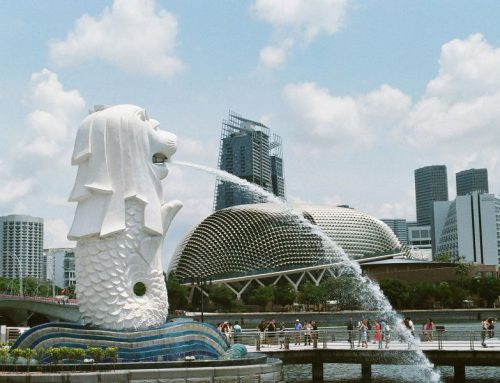Section 10L of the Income Tax Act 1947 (ITA) takes effect from the 1st of January 2024. This section deals with the tax treatment for gains from the sale of foreign assets.
In this article, I will provide a very brief explanation of the
Here is a reproduction of sections 10L(1) and (2) of the ITA:
(1) Despite anything in this Act, gains from the sale or disposal by an entity (called in this section the seller entity) of a relevant group of any movable or immovable property situated outside Singapore at the time of such sale or disposal or any rights or interest thereof (called in this section a foreign asset), that are received in Singapore from outside Singapore, are treated as income chargeable to tax under section 10(1)(g) for the year of assessment relating to the basis period in which the gains are received in Singapore.
(2) Subsection (1) only applies if —
(a) the gains would not otherwise be chargeable to tax as income under section 10(1); or
(b) the gains would otherwise be exempt from tax under this Act.
What the section states is that when an entity, a company for example, sells or disposes of a foreign asset and the proceeds of that sale or disposal, which originated from overseas are brought back into Singapore, those proceeds will be deemed to fall under “any gains or profits of an income nature not falling within any of the preceding paragraphs” under section 10(1)(g) of the ITA and be subject to tax in Singapore.
However, if the entity is an “excluded entity” (section 10L(8) of the ITA), section 10L(1) of the ITA will not apply. This means that if a company can show that it is an excluded entity, the proceeds from the sale or disposal of a foreign asset when brought back to Singapore, will not be subject to tax in Singapore.
The definition of an “excluded entity” is in section 10L(16) of the ITA. Here is a reproduction of the definition under the section:
“excluded entity”, in relation to a basis period, means —
| (a) | a pure equity-holding entity that satisfies all of the following conditions in that basis period:
|
||||||||||||
| (b) | an entity that is not a pure equity-holding entity and that satisfies all of the following conditions in that basis period:
|
The key consideration would be section 10L(b)(ii) of the ITA, which states that one of the criteria needs to be that the entity has adequate economic substance in Singapore.
The factors that will be considered are the number of full-time employees, their qualification and experience, amount of business operational expenses incurred and whether key business decisions are made by the persons in Singapore. The term “taking into account” suggests that this list is non-exhaustive. As this section is new, we do not have any precedence as to how it will be interpreted by the courts. Hence we will stick to this list of considerations.
The Inland Revenue Authority of Singapore (IRAS) does recognise that this may cause uncertainty and hence it is allowing entities to apply for an advance ruling from IRAS on whether it fulfils the adequacy of economic substance before the proposed sale or disposal of the foreign asset. The proposed disposal or sale should be 1 year from the date of application to IRAS.
This clarifies situations in the tax treatment of proceeds where foreign-owned and managed companies are set up in Singapore and these companies sell or dispose of foreign assets and have the proceeds brought back into Singapore. It is clear that if these entities are set up without adequate economic substance (i.e., possibly set up in Singapore for the sole purpose of saving on tax when disposing of foreign assets), then the proceeds of the sale or disposal of foreign assets will be subject to tax under section 10(1)(g) of the ITA.
The intent of this new law is not to penalise what we loosely term as “operational companies” but to close a loophole where entities may be set up in Singapore for tax saving purposes when disposing of assets outside of Singapore.
If your entity is looking to dispose of foreign assets and will have these proceeds brought back into Singapore and you need assistance in the application for an advance ruling from IRAS, you may email us at [email protected].
Yours sincerely,
The editorial team at Raffles Corporate Services







Leave A Comment